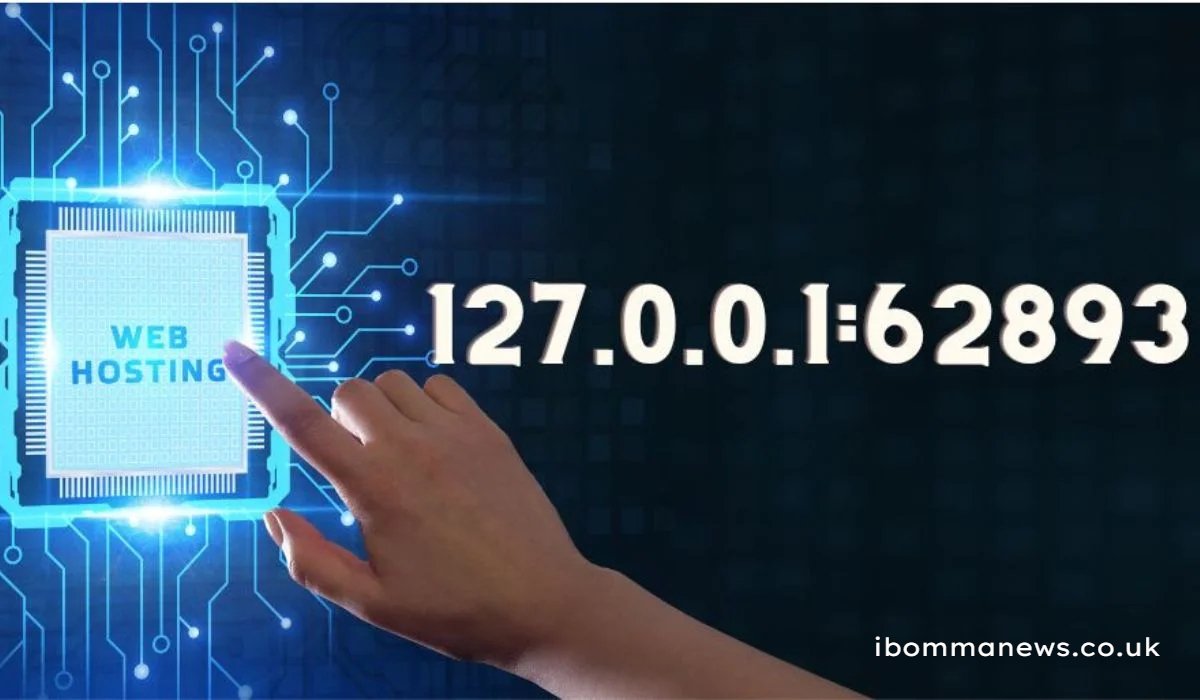The technical world of networking can sometimes feel overwhelming, especially when specific terms like “127.0.0.1:62893” are mentioned. What does this term signify, and why is it essential? In this guide, you’ll gain a complete understanding of 127.0.0.1:62893, its role in the networking landscape, common troubleshooting tips, and more.
127.0.0.1:62893 – The Basics
127.0.0.1 is widely known as the “localhost” address, a reserved IP address used for loopback testing. Loopback testing is vital for verifying software network configurations without requiring external devices. The specific port, 62893, represents a gateway through which communication occurs.
You May Also Like: Masqlaseen: The Future of Database Management
The combination of this IP address and port number is commonly used in application development, debugging, and troubleshooting. When 127.0.0.1:62893 appears, it signifies a communication channel being accessed locally.
Understanding the Role of Localhost in Networking
Localhost, represented by 127.0.0.1, allows internal testing within your system. It ensures that network software can function independently of an external network. This is especially useful in scenarios where:
- A developer needs to simulate network traffic.
- Applications are tested for performance before deployment.
- Configuration errors need to be isolated from physical hardware.
Port 62893 serves as an endpoint in this setup. It is chosen dynamically or explicitly by the developer to facilitate communication during testing.
Why 127.0.0.1:62893 Matters in Everyday Use
This term is more than just a technical detail. It plays a significant role in areas like:
- Web Development: Developers can test web servers locally.
- Application Debugging: Debugging is streamlined by isolating issues within the system.
- Network Diagnostics: Faulty configurations can be identified without external dependencies.
By understanding how 127.0.0.1:62893 functions, users gain insight into localized communication and its importance in the larger networking context.
Common Issues with 127.0.0.1:62893
Even though localhost connections are designed for simplicity, several challenges can arise. Common problems include:
- Port Conflicts: Multiple applications attempting to use the same port can cause errors.
- Firewall Restrictions: Security settings may block access to specific ports.
- Misconfigured Applications: Incorrect binding of services to localhost or the wrong port.
- Resource Limitations: Excessive testing traffic might overload local resources.
Troubleshooting 127.0.0.1:62893
Verify Port Availability
Ensure that the port 62893 is not in use by another application. Using the netstat or lsof command on Unix-based systems can help identify conflicts.
Inspect Firewall Settings
If the port appears blocked, adjust your system’s firewall configuration to allow traffic on 62893.
Check Service Bindings
Ensure that the service is bound to 127.0.0.1 and the correct port by reviewing configuration files or using diagnostic tools.
Restart Services
Often, restarting the application or server that relies on 127.0.0.1:62893 can resolve temporary issues.
Tools for Monitoring and Diagnosing Issues
Several tools are available to simplify the process of monitoring localhost connections and diagnosing problems:
- Wireshark: Analyze network traffic for insights.
- Postman: Test APIs hosted on localhost.
- Netstat: Identify active connections and listening ports.
- Telnet: Confirm connectivity to specific ports.
By leveraging these tools, even complex issues can be approached methodically.
Optimizing Your Environment for 127.0.0.1:62893
For seamless operation, ensure that your environment is optimized:
- Use clear port management practices to avoid conflicts.
- Regularly update your firewall rules to reflect application needs.
- Maintain documentation for application configurations.
Exploring Advanced Use Cases
127.0.0.1:62893 isn’t limited to simple testing. Advanced scenarios include:
- Simulating API Requests: Developers can use tools to mimic external requests on localhost.
- Containerized Applications: Services running within containers like Docker often rely on localhost for internal communication.
- Distributed Systems Testing: Localhost enables developers to emulate parts of a distributed system.
Security Considerations for 127.0.0.1:62893
Localhost communication is inherently private, but potential risks still exist. Misconfigured services or accidental exposure can create vulnerabilities. To enhance security:
- Restrict localhost services to local access only.
- Regularly review firewall and access logs.
- Use secure development practices, including strong authentication for sensitive services.
How Developers Leverage 127.0.0.1:62893
Developers extensively utilize 127.0.0.1:62893 to build, test, and refine applications. Here’s how it’s often used:
- Testing Web Frameworks: Frameworks like Django and Flask often use localhost for development servers.
- Debugging APIs: APIs can be debugged locally before external deployment.
- Monitoring Changes: Real-time development changes are visible without external dependencies.
Future Trends in Localhost Networking
The concept of localhost and specific port configurations is evolving. With the rise of containerization, localhost setups are becoming more sophisticated. Tools like Kubernetes and Docker Swarm enhance how 127.0.0.1 addresses are used in complex architectures.
FAQs
What is 127.0.0.1:62893 used for?
It is used for local communication during software development and debugging.
How can I check if port 62893 is open?
Use tools like netstat, lsof, or specific GUI-based applications to monitor port usage.
Why does localhost communication fail?
Failures may result from port conflicts, firewall restrictions, or misconfigurations.
Is 127.0.0.1:62893 secure?
Yes, but proper configurations and access controls are required to maintain security.
What tools help with troubleshooting localhost?
Tools like Wireshark, Postman, and Telnet are effective for monitoring and troubleshooting.
Can I change the port from 62893 to another?
Yes, port numbers are configurable in most applications and services.
Conclusion
Understanding 127.0.0.1:62893 is essential for anyone involved in software development, debugging, or network diagnostics. By leveraging localhost effectively, users can streamline processes and isolate potential issues before they escalate. With proper troubleshooting techniques, tools, and security practices, working with 127.0.0.1:62893 becomes seamless.











